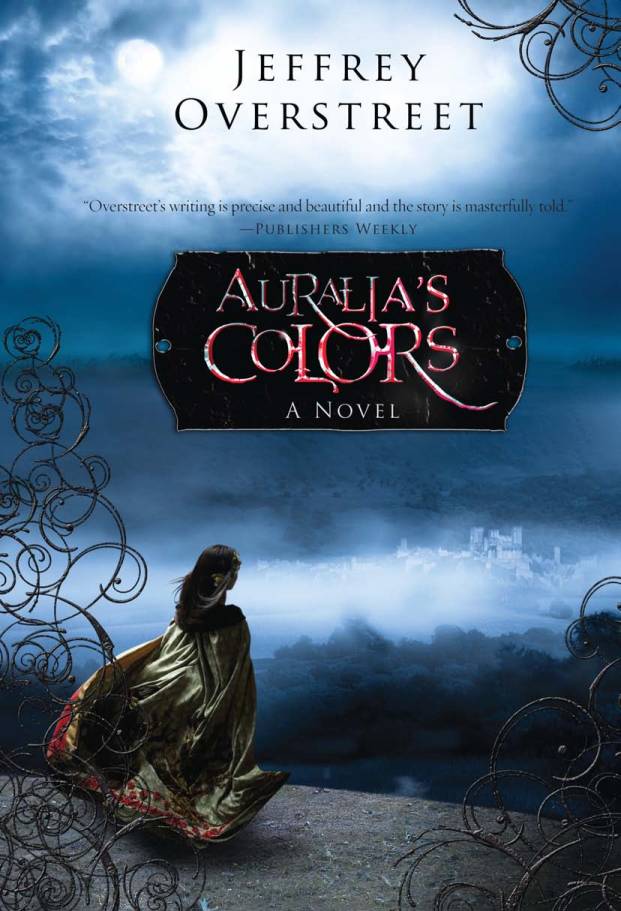‘Auralia’s Colors’ Gives Fantasy Fans Something Different
 Auralia’s Colors came recommended to me as a good Christian fantasy novel. I’ve been away from Christian speculative fiction for a while, after a binge of Frank Peretti and Ted Dekker in my high school years, and I was looking for something to show me that, as my friends at SpecFaith are frequently pointing out, Christian spec fic is alive and well. What’s more, it’s advancing.
Auralia’s Colors came recommended to me as a good Christian fantasy novel. I’ve been away from Christian speculative fiction for a while, after a binge of Frank Peretti and Ted Dekker in my high school years, and I was looking for something to show me that, as my friends at SpecFaith are frequently pointing out, Christian spec fic is alive and well. What’s more, it’s advancing.
The first book of Overstreet’s Auralia Thread begins with the discovery of an orphan girl by two exiled workers from one of the world’s four Great Houses. While the circumstance might seem typical of fantasy, the presentation falls somewhere between the clipped style of modern literature and the stylistic prose of older writers in this and other genres. (In my mind, it hearkened back to Lloyd Alexander’s Prydain Chronicles, among others.)1
The story proceeds similarly, with elements that seem familiar to readers of fantasy (a rebellious but loyal prince, a foundling with a perspective far different from the world she is raised in, a boy with a mysterious and likely noble ancestry) but it develops them in its own way. Rather than being an overly joyous woodland sprite, Auralia is shown to be a fairly mature thinker who examines the world around her to notice what others fail to see about that world. Yet she is never too wise or mature for her years. Like the other characters filling this world, she is balanced and fleshed out. With the possible exception of Scharr ben Fray, the resident wizard, the characters of Auralia’s world seem to defy their fantasy stereotypes.
So, too, does the storytelling. It took me a good half to two thirds of the novel before I reached the stage of wanting to finish all in one go. Most modern novels don’t take that long with me, but the prevailing trend nowadays is to write so as to propel the reader forward as quickly as possible. Overstreet, like many authors before him, invites you to slow down and visit with the characters a bit longer. There are several threads that weave together in this novel, and they remain surprisingly separate for most of the book. This means that the reader has to pay closer attention to each chapter, because it may be a while before we return to any given viewpoint.
While this style of storytelling was at first difficult for me to embrace (it’s neither what I’m used to reading nor what I write), I came to appreciate that Overstreet was doing something different. He wasn’t setting out on a typical fantasy series-opening novel, with wholly predictable encounters and outcomes. He kept me guessing and interested in the lives of his characters despite the length of time before I felt immersed in the world. I look forward to reading the rest of the series to see what else is in store for the residents of House Abascar and beyond.
- The more I think about it, the comparison with Prydain is very apt, as Alexander’s stories are very different from the usual fare, particularly Taran Wanderer. ↩




































I really love these novels of Overstreets. They are different from others in the same genre and pub date, and I can’t really put my finger on it well. Maybe it’s his sense of wonder. Also, I love it that he leaves so much up to the reader’s imagination: he doesn’t describe the weird scissorbirds or whatever he called them. He just lets us wonder and imagine what they might look like.
I love those books. Some of the most original speculative fiction in ages